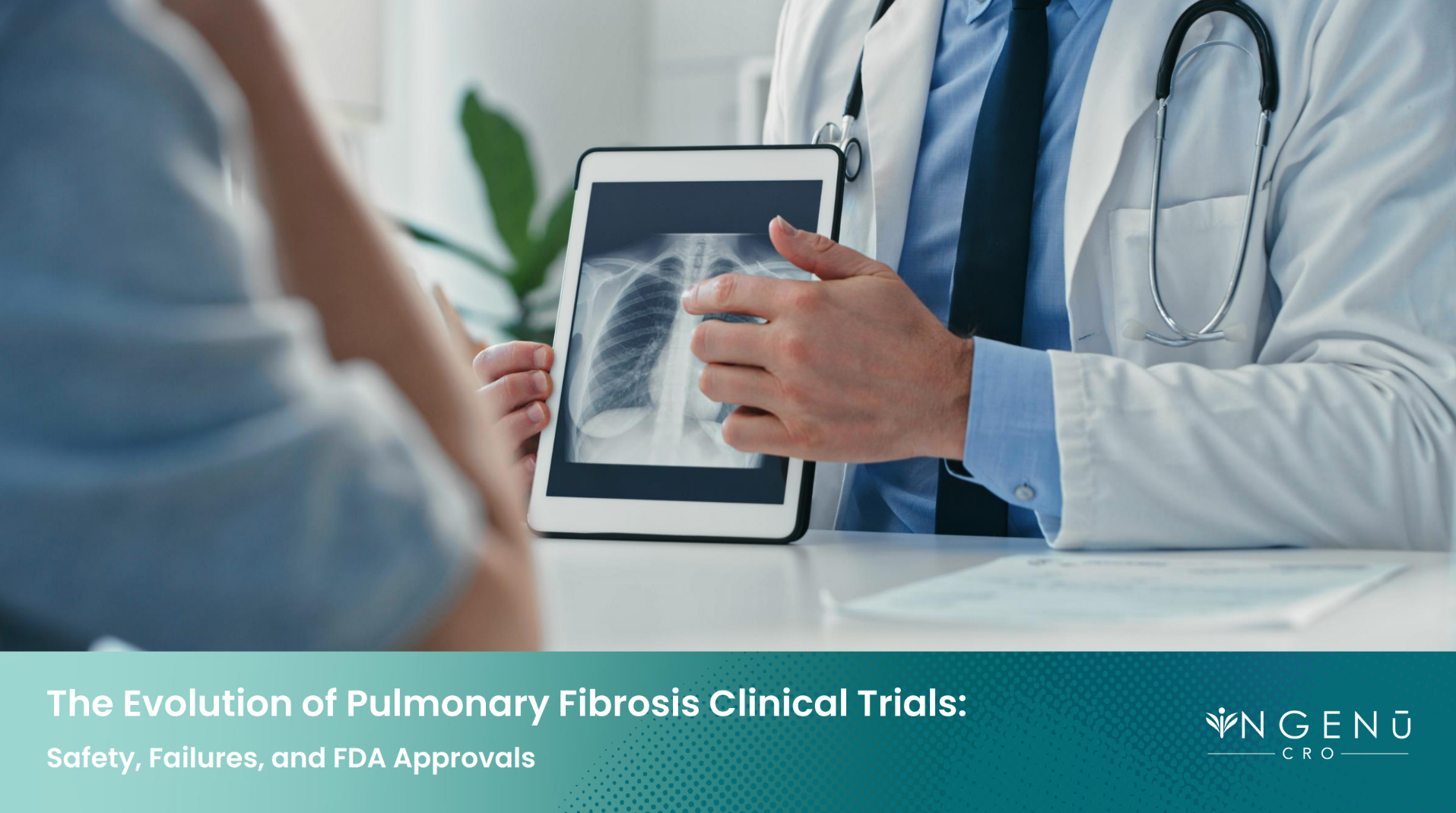Download our whitepaper,
"The Evolution of Pulmonary Fibrosis Clinical Trials: Safety, Failures, and FDA Approvals"

What's Inside:
- Key FDA-Approved Pivotal Endpoints for Pulmonary Fibrosis Clinical Trials.
- Optimizing Recruitment with Adaptive Trial Designs for Pulmonary Fibrosis.
- Comprehensive Analysis of FDA-Approved Pulmonary Fibrosis Drugs.
- How Diagnostic Criteria for Pulmonary Fibrosis Have Evolved and Impact Research.
- Overcoming Common Pitfalls in Pulmonary Fibrosis Clinical Trials.
- And additional insights to drive your trial's success.
Access your complimentary whitepaper today:
Pulmonary Fibrosis
Pulmonary fibrosis (PF) is a chronic, progressive lung disease marked by scarring and thickening of lung tissue, impairing oxygen exchange and leading to symptoms such as breathlessness, fatigue, and reduced exercise tolerance.
Among the most prevalent forms, idiopathic pulmonary fibrosis (IPF) carries significant morbidity and mortality, with median survival rates of just 3–5 years post-diagnosis.
Despite advancements in understanding its pathophysiology—spanning genetic predispositions, environmental factors, and cellular injury—diagnosis remains complex, often delayed by nonspecific early symptoms.
iNGENū’s team of researchers and clinicians is dedicated to advancing pulmonary fibrosis research. Through innovative trial designs and a patient-centered approach, we work to accelerate the development of new treatments that could offer improved options and outcomes for those affected by neuropathic pain.
Median age at diagnosis is
66
years
Idiopathic Pulmonary Fibrosis (IPF) affects approximately
17
per 100,000 individuals in the U.S
The global pulmonary fibrosis therapeutics market was valued at USD
$4.8b
Our clinical team has over
120
years of combined clinical trial experience